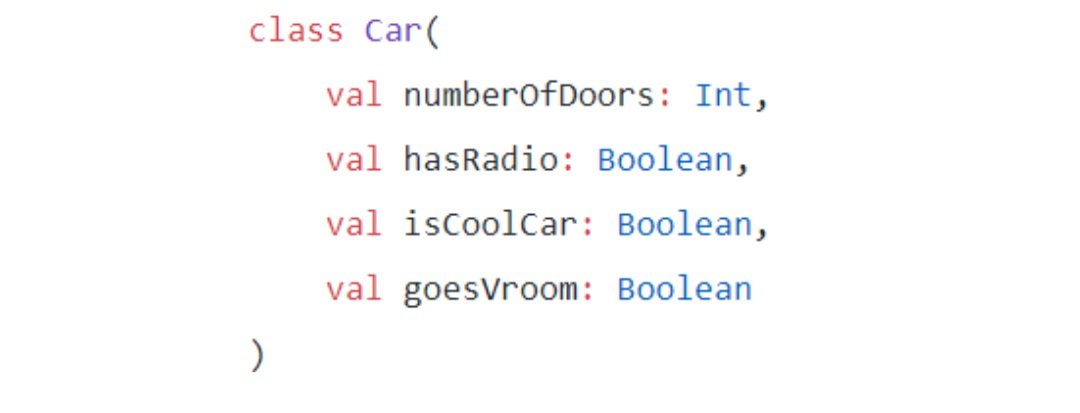Kotlin: Rules for writing classes
You have inferred your desire for stability. Mostly this means you should aim for immutability as gaining stability through notifying composition requires a lot of work, such as was done by the creation of the MutableState <T> class.
1. Do not use var as properties inside state-holding classes
As these are mutable but do not notify composition, they will make the compostables which use them unstable.
Do:
data class InherentlyStableClass (val text: String)
Don’t:
data class InherentlyUnstableClass(var text: String)
2. Private properties still affect the stability
As of the time of writing, it is uncertain if this is a design choice or a bug, but let’s slightly modify our stable class from above.
The compiler report will mark this class as unstable:
Looking at the results, it’s fairly obvious that the compiler struggles here. It marks both individual properties as stable, even though one is not, but marks the whole class as unstable.
3. Do not use classes that belong to an external module to form the state
Sadly, Compose can only infer stability for classes, interfaces, and objects that originate from a module compiled by the Compose Compiler. This means that any externally originated class will be marked as unstable, regardless of its true stability.
Let’s say you have the following class, which comes from an external module and is therefore unstable:
A common way to build a state using it would be to do the following:
However, this is troublesome. Now you’ve made our state class unstable and therefore unskippable. This could potentially cause performance issues.
Luckily there are multiple ways to get around this.
If you only need a few properties of Car to form RegisteredCarState, you may simply flatten it as follows:
However, this may not be appropriate in cases where you need the whole object with all its properties.
In such cases, you may create a local stable counterpart such as:
The two are identical, but CarState is stable.
Because users might need to convert to and from these classes depending on which architectural layer they are dealing with, you should provide easy mapping functions going both ways, such as:
fun Car.toCarState(): CarState
fun CarState.toCar(): Car
4. Do not expect immutability from collections
Things such as List, Set, and Map might seem immutable at first, but they are not, and the Compiler will mark them as unstable.
Currently, there are two alternatives, the more straightforward one includes using Kotlin’s immutable collections. However, these are still pre-release and might not be viable.
The other solution, which is a technical hack and not officially advised but used by the community, is to wrap your lists and mark the wrapper class as @Immutable.
5. Flows are unstable
Even though they might seem stable since they are observable, Flows do not notify composition when they emit new values. This makes them inherently unstable. Use them only if absolutely necessary.
6. Inlined Composables are neither restartable nor skippable
As with all inlined functions, these can present performance benefits. Some common Composables such as Column, Row, and Box are all inlined. As such, this is not an admonishment of inlining Composables, just a suggestion that you should be mindful when inlining Composables or using inlined Composables and be aware of how they affect the parent scope recomposition.








